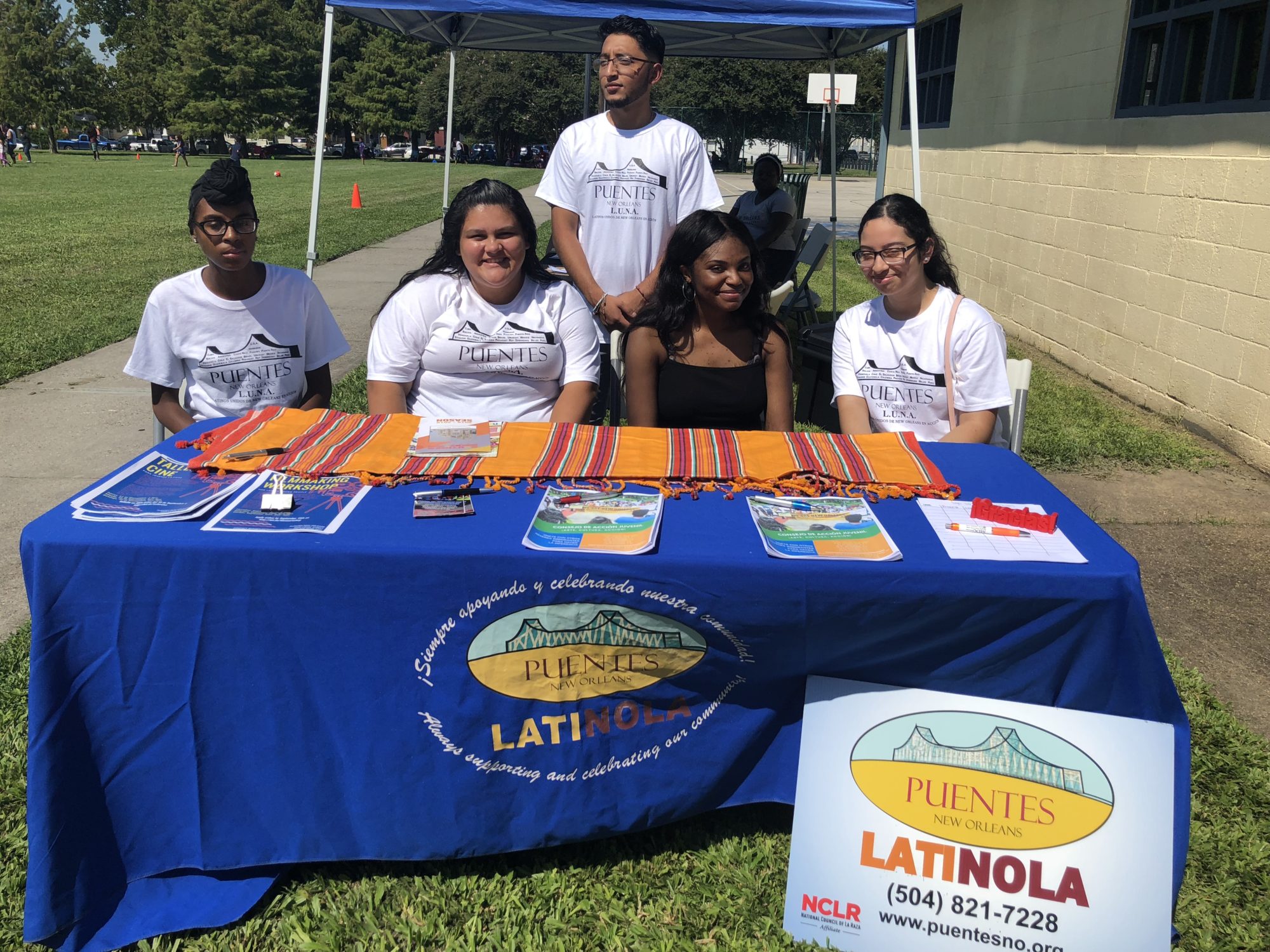Alvarez Spark Innovation Award recipient Jennifer Scarnato Miller is a Ph.D candidate in Tulane’s City, Culture, and Community program. She used her funding to support young migrant people to participate in a Digital Narrative Therapy pilot project.
Thanks to the support of an Alvarez Spark Award from the Taylor Center, I was able to spend time this summer working closely with a group of Latinx immigrant young people involved in Puentes New Orleans’ youth organizing group, LUNA (Latinos Unidos de New Orleans en Acción). I’ve been working with Puentes and LUNA for a few months now as part of a larger community-engaged research project supported by the Mellon Fellowship for Community-Engaged Scholarship, and the Spark Award allowed me to further develop and test my planned project with the young people who would be involved.


This project, based on storytelling and digital media production, fits in with LUNA’s broader objectives: to build youth empowerment through a combination of creative expression and informed social action, bringing youth members together to develop innovative and actionable solutions to building a more open, inclusive, and equitable world. We hoped to give LUNA members hands-on training in media production so that they can use digital media outlets to raise awareness about issues impacting the immigrant community as part of their organizing work. We also wanted young people to feel safe and supported in sharing personal stories as a a way of connecting with and helping other immigrant young people, and humanizing immigrant issues within the broader media landscape. Our plan to accomplish this was to infuse collective narrative therapy practices – a group-based method of working with people to tell their stories in ways that make them stronger – into our media production workshops. But before embarking on this project, we felt it was important to have the input from real “users” of this new program.

With award funds from Taylor, we were able to actually test out components of the program design with some of the LUNA members who would be participating in it, making sure that we tailored the experience to their needs. Our first step in doing so was presenting the overall idea to them and collecting their feedback about it through a focus group. That focus group allowed us to gain valuable insight regarding members’ needs (transportation, peer and instructor support, scheduling), desires (helping others, connecting to one another, learning a new skill), and questions (Who will see the videos we produce? How will we disseminate them? What will be the program format?) Taking these factors into account, we were able to revise our project proposal and move one step closer to implementation.

With a LUNA-approved project proposal, it was time to decide how our funds should be allocated. We knew that our main expenditures would be on video production equipment, stipends for program participants, and food during the workshops. Rather than employing a top-down approach to create a project budget, we held another focus group centered on participatory budgeting. This allowed LUNA members to be involved in key decision-making processes regarding how our funds should be spent. One afternoon, we discussed the resources needed to make our project a success. Through this democratic process, LUNA members actively determined how funds from the Alvarez Spark Award and other funding sources would be spent. This process was consistent with our project goals – to empower youth voices and civic participation – and promoted transparency and collaboration in our project’s implementation.


